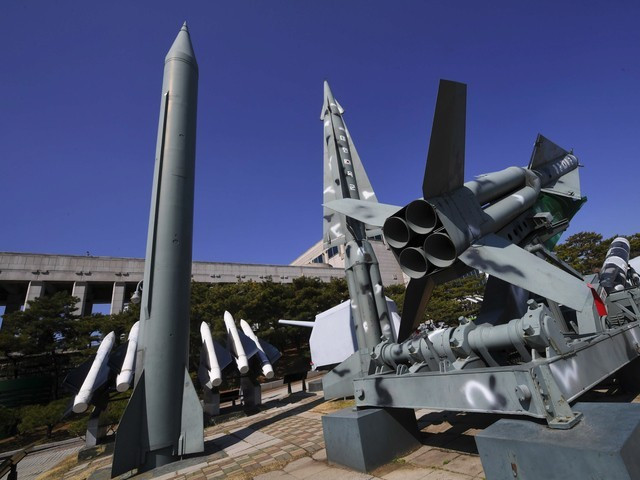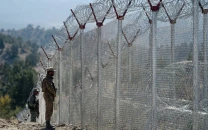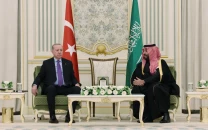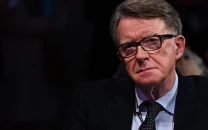Five questions on North Korea's missile programme
North Korea considers itself a victim of US imperialism

Replicas of a North Korean Scud-B missile (left) and South Korean Nike missiles (right) are displayed at the Korean War Memorial in Seoul on March 6, 2017. PHOTO: AFP
Here are five questions on the North's missile and nuclear weapons program, which it insists are for defensive purposes.
Analysts say the latest missile launch is likely an act of protest against annual joint military drills by Seoul and Washington, and a renewed challenge to the US news administration.
North Korea fires missiles, three reach Japan waters
The two allies kicked off the Foal Eagle exercises last week that always infuriate Pyongyang - last year it fired seven ballistic missiles during them.
The North may also be trying to send a message to US President Donald Trump - who has described Pyongyang as a "big, big problem" - ahead of a planned trip to the region by his Secretary of State Rex Tillerson at the end of the month.
Unlike most recent launches, Monday's took off from a location close to the Sohae long-range rocket facility in Tongchang county, but analysts say they are unlikely to be tests of a new device.
The missiles travelled 1,000 kilometres (620 miles) and reached an altitude of 260 kilometres before landing in the Sea of Japan/East Sea.
The South's Joint Chiefs of Staff did not identify the missile type but said they were unlikely to be intercontinental ballistic missiles (ICBM) capable of reaching the US mainland - a key goal of the North's missile program.
Japan says three North Korean missiles landed in its waters
As the North fired four missiles, analysts note the devices could be short-range Scud missiles with a range of 500 to 700 kilometres, or mid-range Rodong missiles with a range of 1,300 to 1,500 kilometres.
Pyongyang carried out two atomic tests last year and a series of missile launches, but Monday was only the second time its devices had entered Japan's EEZ.
Trump has described the North as a "big, big problem" and vowed a strong response after its missile launch in February. But his administration is beset with domestic political controversies.
Six sets of US-led UN resolutions have been imposed on the North since its first nuclear test in 2006, and have failed to prevent the regime from making progress in its weapons programme.
China is the North's key diplomatic ally and main business partner, but has become increasingly frustrated with its nuclear ambitions. It announced a suspension of coal imports last month.
But Beijing has been infuriated by Seoul and Washington's plan to deploy a US missile defence system in the South this year to shield against North Korean threats.
In his New Year address, leader Kim Jong-Un said that Pyongyang was in the "final stages" of developing an ICBM.
Analysts are divided over how close Pyongyang is to realising its full nuclear ambitions, especially as it has never successfully test-fired an ICBM.
But all agree it has made enormous strides in that direction since Kim took over as leader from his father Kim Jong-Il, who died in December 2011.
Questions remain over its ability to master the re-entry technology needed to deliver a warhead to a target as far away as the United States, and whether it has managed to miniaturise a nuclear device to the extent that it would fit on the tip of a missile.
North Korea considers itself a victim of US imperialism and hopes that its nuclear tests and rocket launches will help bring Washington to the negotiating table, where Pyongyang would seek to extract concessions.
US 'strongly condemns' North Korea missile launch: State Dept
Under Barack Obama, the United States ruled out engaging the North until it made a tangible commitment to de-nuclearisation, hoping that internal stresses in the isolated country would bring about change.
Critics said the policy of "strategic patience" gave Pyongyang room to push ahead with its nuclear weapons program.
Aside from a few brief Tweets, Trump has yet to articulate his policy towards the North.



















COMMENTS
Comments are moderated and generally will be posted if they are on-topic and not abusive.
For more information, please see our Comments FAQ